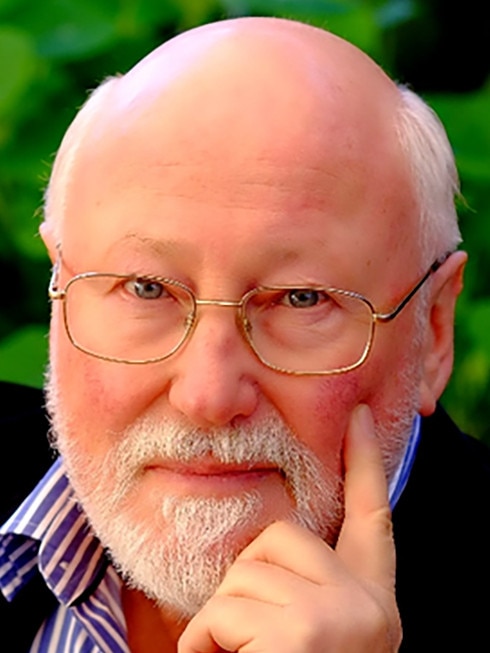Influential science writer Julian Cribb warns the threat to the world’s food supply is a greater challenge than COVID-19
There is a crisis even bigger than COVID-19 threatening the world and, if we don’t act now, it may be too late to undo the damage. This is how you can help.
While the world is consumed by the coronavirus, a crisis is brewing that poses a far greater challenge: the threat to the global food supply.
Julian Cribb, author of several books including The Coming Famine, hopes that COVID-19 is the light bulb moment to correct bad and unsustainable eating behaviours.
The veteran science writer cautions the next crisis after our summer bushfires and coronavirus pandemic is safeguarding food.
Climate change, wasteful agricultural practices and a modern industrial diet fuelling widespread health issues such as obesity and diabetes are at the core of the food crisis.
Mr Cribb warns if we don’t act immediately we will eat away any hope of a sustainable future.
He presented his findings at the Australasian College of Nutritional and Environmental Medicine’s (ACNEM) 2020 Global Conference on Wednesday.
“The global food system is going to break down and it needs to be rethought as a matter of urgency,” he told News Corp Australia.


In his book Food Or War, Mr Cribb advocates that the most destructive implement on the planet is the human jawbone.
He says individuals can make a change starting with what they put in their shopping basket.
“You need to become an informed consumer, you need to choose those foods which are a, healthy and b, sustainable,” he said.
Australians can help by eating less meat and more fresh fruit and vegetables.
“Here in Australia we are the world’s leading meat eating country, we eat far too much meat for a healthy diet, it’s killing us and it’s not benefiting the landscape,” he said.
Mr Cribb urged Australians to buy foods advertised as chemical-free or low chemical for the good of their health.
“There are several thousand petrochemicals added to your food constantly. Everyone is exposed to these things when they eat processed food,” Mr Cribb cautioned.
“If you eat beef, opt for grass-fed instead of grain-fed for its natural process.”
There are 30,000 edible plants on earth yet we eat less than 200 different plants because of the industrial diet. And of the 200, most people generally only include about a dozen in their diet.
“The opportunity for totally new food, totally new diets, totally new cuisine is absolutely vast, we have not explored the Earth,” Mr Cribb said.
Similarly Dr Brad Ridoutt, principal research scientist at the CSIRO, is urging Australians to make a list before going shopping to avoid buying foods that end up being wasted.
“The first priority to reduce environmental impacts is to avoid food waste,” Dr Ridoutt said.
“On average, maybe a third of what we buy is never consumed”.
MORE NEWS
Victorian COVID cases mount as death toll climbs
Aussies: Stop relying on China
Why jobless have enough for the basics

He said Australians need to reduce discretionary food consumption to sensible levels.
“Discretionary foods contribute to excess energy intake, displace healthy core foods creating micronutrient gaps, and are the main reason for poor diets in this country,” Dr Ridoutt said.
“Also, they greatly inflate environmental impacts. They contribute 29 per cent of dietary greenhouse gas emissions, 25 per cent of water scarcity footprint, and 33 per cent of cropland footprint.”
Mr Cribb said there are three pillars to making changes to protect our food supply: regenerative agriculture that repairs, not destroys, the landscape; urban food production on a large scale; and deep ocean agriculture.
“We need to reinvent food, we need a renewable food system, as we reinvented everything, as we reinvented transport, as we are currently reinventing energy,” he said.
“If you do all these (pillars) you can basically turn half of your currently farmed and grazed area on earth back to wilderness and that means you can end the sixth extinction”.
Originally published as Influential science writer Julian Cribb warns the threat to the world’s food supply is a greater challenge than COVID-19
